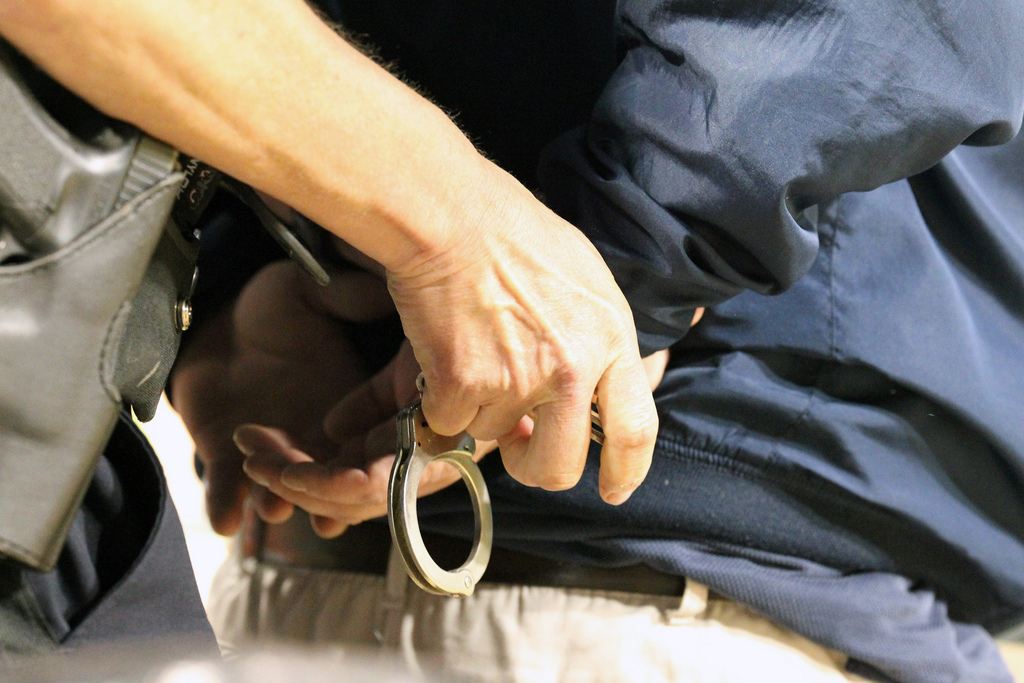 As a growing number of states and counties end or limit their cooperation with immigration detainers, Homeland Security Secretary Jeh Johnson said Thursday that he is taking a “fresh look” at Secure Communities, a program that started in 2008 that allows local law enforcement to share fingerprints of people booked in jails with federal immigration officials. In theory, Johnson told PBS News Hour that Secure Communities should be a way for local and state authorities to work with federal agents and identify undocumented immigrants who are convicted of crimes and thus considered priorities for removal. But “the program has become very controversial,” Johnson said in the interview. “And I told a group of sheriffs and chiefs that I met with a couple days ago that I thought we needed a fresh start.”
As a growing number of states and counties end or limit their cooperation with immigration detainers, Homeland Security Secretary Jeh Johnson said Thursday that he is taking a “fresh look” at Secure Communities, a program that started in 2008 that allows local law enforcement to share fingerprints of people booked in jails with federal immigration officials. In theory, Johnson told PBS News Hour that Secure Communities should be a way for local and state authorities to work with federal agents and identify undocumented immigrants who are convicted of crimes and thus considered priorities for removal. But “the program has become very controversial,” Johnson said in the interview. “And I told a group of sheriffs and chiefs that I met with a couple days ago that I thought we needed a fresh start.”
This week, counties in Washington state, California, and Pennsylvania became the most recent to limit when local law enforcement will honor detainer requests from Immigration and Customs Enforcement (ICE) officials. A federal court ruled in April that an Oregon county “violated one woman’s Fourth Amendment rights by holding her for immigration authorities without probable cause,” which spurred the detainer policy changes in several Oregon, Washington, and Colorado counties. The Whatcom County Sheriff’s Office in Washington state joined in altering its policy, announcing that jail staff will not book any person “solely because of an ICE detainer, and must not delay the normally scheduled release of an inmate because of an ICE detainer,” under the new policy, according to the Bellingham Herald. Whatcom Sheriff Bill Elso said the county “does not and has not” booked people in the county jail because of a detainer request, but previously, they had delayed discharging inmates for up to six hours.
Santa Cruz County in California initially resisted the state’s TRUST Act, which limits ICE detainers across the state, but after the Oregon ruling, officials announced they will stop honoring the requests. The change effectively ends local involvement with Secure Communities. “We certainly wouldn’t want to be subject to lawsuits and the like, so we are no longer holding someone solely on an ICE detainer (request),” Santa Cruz County Sheriff Phil Wowak said to the Santa Cruz Sentinel. “There must be some other underlying offense.”
In Pennsylvania, the Lehigh County Commission approved a new policy that ends the county’s cooperation with federal requests to hold inmates beyond their release date. The Third Circuit ruled in March that “Lehigh County prison officials violated the rights of Ernesto Galarza, who was held for three days after posting bail because of an immigration detainer.” The federal court was the first to rule that ICE detainers are not mandatory. Under the new policy, the Allentown Morning Call reports that county officials will make an effort to inform ICE when someone for whom they have issued a detainer is being released, but the jail will not hold the person unless there is a court-issued detainer, warrant, or order.
On the heels of Johnson’s most recent comments and the more than 60 jurisdictions to date that have limited ICE detainers, more than 150 immigrant, faith, labor, and civil rights organizations signed a letter asking Johnson to use his “existing legal authority to end ICE’s use of holds to enlist local police as so-called ‘force-multipliers’ that amplify the enforcement of unjust immigration laws.” The jurisdictions that have stopped honoring detainers are a strong repudiation against current policies, the letter states, and the groups ask Johnson to change them as part of his ongoing policy review. “By continuing to issue these holds despite widespread evidence that they are violating fundamental constitutional rights and interfering with law enforcement efforts to protect public safety, ICE is sending a message that it prioritizes its deportation quota above all else,” the letter says.
Photo by Keith Allison.
FILED UNDER: Department of Homeland Security, Executive Branch, featured, immigration detainers, Jeh Johnson, secure communities, trust act


